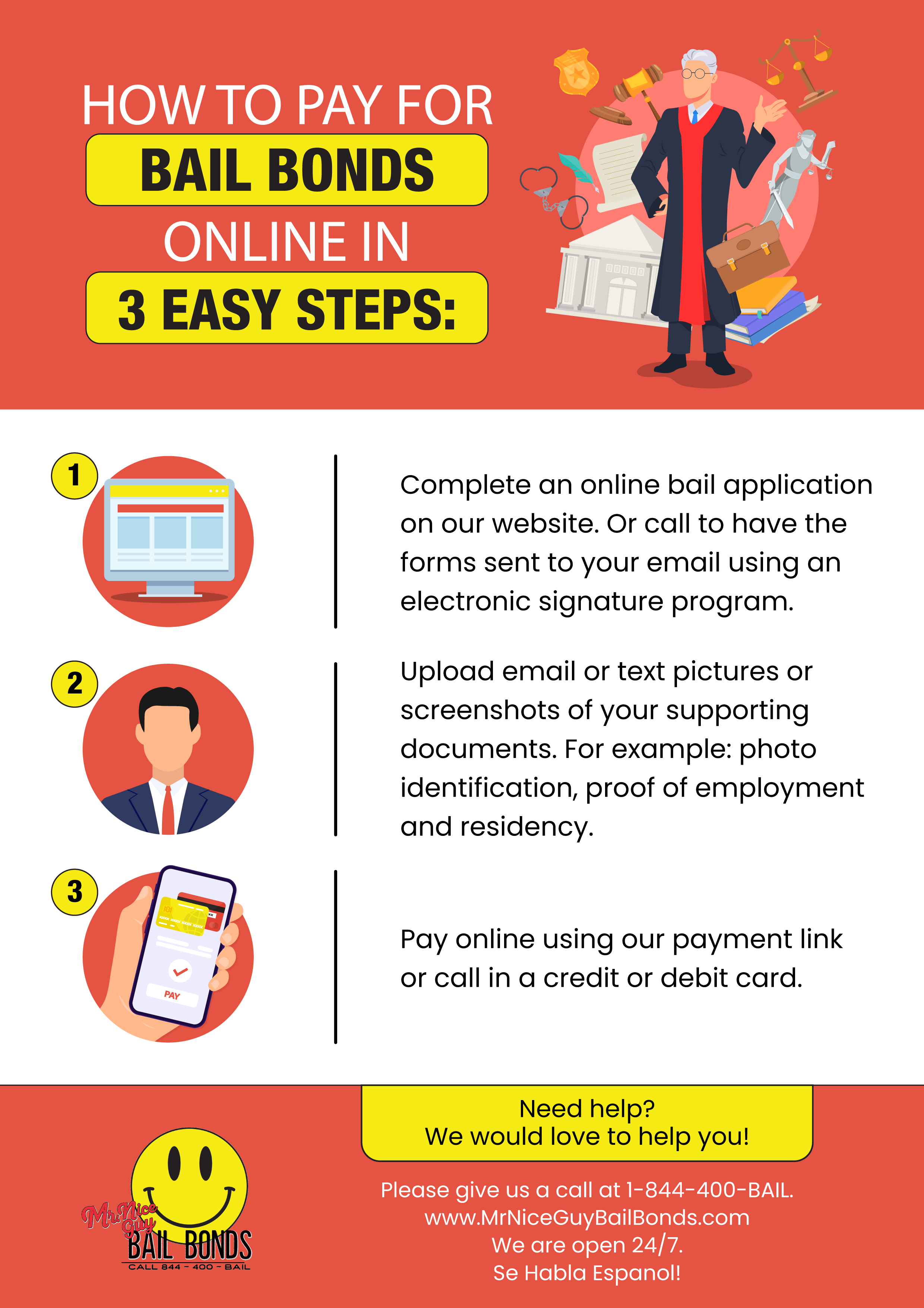Your Full Guide to Recognizing Bail Bond Conditions
Navigating the intricacies of bail bond terms and conditions is a vital element of efficiently managing lawful obstacles. Different kinds of bond bonds and their connected costs can significantly influence the decision-making process.
What Is a Bail Bond?
A bail bond is a legal contract between an accused, a bail bondsman, and the court, guaranteeing that the defendant will certainly show up for scheduled court process in exchange for their release from custodianship. bail bonds service. This legal tool serves to secure the rate of interests of the court by giving an economic incentive for the offender to follow judicial needs
(bail bonds hamilton ohio)Normally, when an offender is arrested, they may be provided the choice to upload bail, which is a monetary amount established by the court. If the accused can not manage the bond, they can seek the assistance of a bail bondsman. The bondsman charges a non-refundable fee-- generally a percentage of the total bail amount-- in exchange for uploading the bail in support of the offender.
Upon the offender's release, the bail bond continues to be essentially till the verdict of the lawsuit. Failing to show up in court might lead to forfeit of the bond quantity, and the bondsman may pursue the defendant to recover the expenses sustained. bail bonds service. Recognizing the characteristics of bail bonds is important for accuseds and their families as they browse the judicial procedure.
Secret Terms Described
Recognizing bond bonds includes familiarizing oneself with a number of crucial terms that are essential to the procedure. One essential term is "bail," which refers to the amount of money called for to protect the release of an accused from safekeeping while awaiting trial. "Bail bail bondsman," or "bail bondsman," is another vital term, denoting an expert that provides the necessary funds for bail in exchange for a fee, normally a percent of the total bond quantity.
" Collateral" is additionally substantial; it represents properties pledged by the offender or co-signer to ensure the bond's payment. If the defendant falls short to show up in court, the collateral may be forfeited. The term "indemnitor" describes the individual that consents to be accountable for the bond, frequently a member of the family or pal of the implicated.

Sorts Of Bond Bonds
Various sorts of bail bonds offer various purposes and satisfy specific situations in the lawful system. One of the most common kind is the surety bond, where a bondsman ensures the defendant's look in court in exchange for a cost, commonly 10% of the bond amount. This kind is extensively utilized due to the fact that it permits individuals that can not pay for the full bond to protect their launch.
One more type is the cash money bond, which requires the complete bail total up to be paid in money to the court. This option is commonly chosen for reduced bail quantities, as it guarantees the offender's launch without including a bail bondsman (bail bonds service). If the defendant appears in court as called for, the cash money is refunded at the conclusion of the case
Additionally, there are residential property bonds, where property is made use of as security for the bond quantity. This can be a feasible choice for individuals that own home but do not have fluid funds.
Finally, federal bonds relate to government situations and are generally extra challenging to obtain, commonly calling for the assistance of a specialized bondsman. Recognizing these variants is essential for browsing the bond system effectively.
Typical Misunderstandings
Misconceptions about bail bonds commonly lead to complication for accuseds and their households. In truth, bond offers as an economic guarantee that the defendant will show up at their arranged court hearings.
An additional typical misunderstanding is that all bond bonds are the same. There are several sorts of bail bonds, consisting of surety bonds, cash bonds, and residential property bonds, each with unique features and requirements. Comprehending these distinctions is critical for making educated choices.
In addition, many individuals think that bail bond agents are merely shylock. Actually, licensed bail bond agents run within a managed framework, charging a premium for their services, which is commonly a percentage of the total bond amount.
Last but not least, some think that only well-off individuals can afford bond. Bail bond services are developed to help those that may not have instant access to huge sums of money, permitting a wider sector of the population to safeguard their release while waiting for trial. Clear understanding of these misunderstandings can considerably alleviate anxiety throughout a challenging time.
Comprehending Fees and Expenses
While navigating the bail bond process, it is vital to understand the charges and prices connected with protecting a bond. Bond bonds generally call for a non-refundable premium, which is a percent of the total bail quantity established by the court. This premium generally varies from 10% to 15%, depending on state guidelines and the bail bond agency's policies.
In enhancement to the costs, there may be other fees included. These can include management fees for refining the bond, security charges if assets are required to protect the bond, and possible renewal costs if the bond needs to be expanded. It is important to ask the bail bond representative for a detailed malfunction of all costs to prevent unanticipated expenditures.
(bail bonds springfield ohio)Understanding these monetary facets in advancement can assist people make notified choices and ensure they are prepared for the general prices associated with the bail bond process. click reference Constantly read the contract thoroughly and look for information on any kind of unclear terms prior to continuing.
Conclusion
